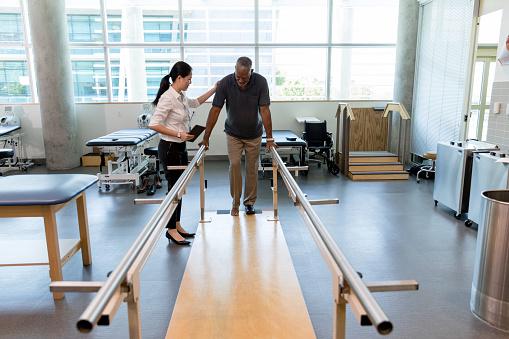Mental health is an essential aspect of overall well-being, and the demand for mental health services has surged in recent years. In cities like Atlanta, where individuals face a range of social, emotional, and psychological challenges, mental health facilities play a critical role in providing effective care and support. Whether dealing with mental health disorders like depression, anxiety, substance abuse, trauma, or eating disorders, these facilities are designed to offer various levels of care that can help individuals regain control of their lives and improve their quality of life.
This article will explore the types of mental health facility atlanta, the services they offer, and why they are crucial for mental health care.
Types of Mental Health Facilities in Atlanta
Mental health facilities in Atlanta range from inpatient hospitals and treatment centers to outpatient clinics and specialized therapy centers. Each type of facility serves different needs, from emergency care to long-term support, depending on the severity of the condition and the individual’s treatment requirements.
1. Inpatient Mental Health Facilities
Inpatient mental health facilities are typically designed for individuals with severe mental health conditions that require 24/7 care and supervision. These facilities provide a structured environment where individuals can receive intensive treatment, including psychiatric care, therapy, and medication management. Inpatient treatment is usually necessary for individuals who are experiencing acute mental health crises, or who may pose a risk to themselves or others.
Some prominent inpatient mental health facilities in Atlanta include:
-
Peachford Behavioral Health System: One of the largest and most well-known inpatient facilities in the Atlanta area, Peachford provides a range of services for those dealing with mental health and substance use disorders. The facility offers inpatient care for conditions such as depression, anxiety, bipolar disorder, and schizophrenia, as well as detoxification for individuals struggling with addiction.
-
Grady Memorial Hospital: Grady’s psychiatric services provide a comprehensive range of mental health care, including inpatient psychiatric care. Their psychiatric emergency services provide immediate assessment and care for individuals experiencing a mental health crisis.
-
The Shepherd Center: Although known for treating spinal cord and brain injuries, The Shepherd Center also offers mental health services for individuals who are dealing with trauma, anxiety, and depression resulting from their injuries or other psychological conditions.
Inpatient care in these facilities is typically short-term, and the goal is to stabilize patients so they can transition to a lower level of care, such as outpatient therapy or an intensive outpatient program (IOP).
2. Outpatient Mental Health Facilities
Outpatient mental health care is ideal for individuals who do not require 24-hour care but still need regular therapeutic interventions. These services include therapy, counseling, psychiatric evaluations, and medication management. Many outpatient mental health facilities in Atlanta also offer specialized programs tailored to specific needs, such as addiction recovery, trauma treatment, or eating disorder therapy.
Some notable outpatient mental health facilities in Atlanta include:
-
Georgia Behavioral Health Professionals: Offering a range of outpatient services, this facility provides therapy for individuals struggling with depression, anxiety, PTSD, and substance use disorders. They specialize in individual therapy, group therapy, family therapy, and medication management.
-
Skyland Trail: This nonprofit mental health treatment center offers outpatient services for individuals with mental health disorders such as depression, anxiety, and bipolar disorder. Skyland Trail provides an evidence-based approach that combines therapy, skills training, and support.
-
Atlanta Psychotherapy: Offering outpatient psychotherapy services, Atlanta Psychotherapy provides individual and family therapy to those experiencing mental health challenges. They also offer specialized therapy for trauma and stress-related disorders.
Outpatient facilities are ideal for individuals who need ongoing treatment, but who are able to live at home and carry on with their daily lives. Treatment plans are customized based on individual needs and may include therapy, medication, or both.
3. Partial Hospitalization Programs (PHP)
Partial hospitalization programs offer an intermediate level of care, typically between inpatient care and traditional outpatient therapy. PHPs provide structured daily treatment, but unlike inpatient care, patients return home in the evening. These programs are ideal for individuals who need intensive treatment for mental health issues but do not require round-the-clock supervision.
Some facilities in Atlanta offering PHP services include:
-
Peachford Behavioral Health System: Peachford also offers a Partial Hospitalization Program for individuals who require intensive mental health services but do not need inpatient care. The PHP includes daily therapy sessions and medication management.
-
The Retreat at Atlanta: This center offers a PHP for individuals struggling with substance use disorders. The program combines therapy, counseling, and support to help patients achieve long-term recovery.
4. Specialized Mental Health Clinics
In addition to the general mental health facilities mentioned above, Atlanta also has clinics that specialize in treating specific mental health conditions. These facilities offer targeted treatment for individuals dealing with particular challenges, such as addiction, eating disorders, trauma, and co-occurring disorders.
Some examples of specialized mental health clinics in Atlanta include:
-
The Eating Disorder Center of Atlanta: This facility specializes in treating individuals with eating disorders such as anorexia, bulimia, and binge eating disorder. They offer inpatient, outpatient, and intensive outpatient services to support individuals in their recovery journey.
-
Atlanta Trauma Recovery: Focused on trauma and PTSD, this clinic offers specialized therapy for individuals who have experienced trauma, abuse, or other life-altering events. They offer trauma-focused therapy, EMDR (Eye Movement Desensitization and Reprocessing), and group therapy for those in need of intensive care.
Services Offered at Mental Health Facilities in Atlanta
Mental health facilities in Atlanta offer a wide array of services that are designed to meet the needs of individuals at different stages of their mental health journey. These services may include:
-
Therapy and Counseling: Therapy is the cornerstone of mental health treatment, whether it's individual therapy, group therapy, family counseling, or specialized therapy like cognitive behavioral therapy (CBT), dialectical behavior therapy (DBT), or trauma-focused therapy.
-
Medication Management: Many individuals with mental health disorders benefit from medication to help manage symptoms such as anxiety, depression, or psychosis. Psychiatrists and other medical professionals in these facilities can prescribe and monitor medications to help manage conditions.
-
Crisis Intervention: For individuals experiencing an immediate mental health crisis, facilities like Grady Memorial Hospital and Peachford Behavioral Health provide 24/7 emergency psychiatric care to stabilize individuals and provide immediate relief.
-
Support Groups: Many mental health facilities offer support groups where individuals can connect with others who are facing similar challenges. These groups provide an opportunity to share experiences, offer encouragement, and learn coping strategies.
-
Family Therapy and Education: Many mental health facilities offer family therapy to help loved ones understand and support the individual’s treatment plan. Family therapy can be particularly important in cases of substance use disorder or eating disorders, where family dynamics may play a role in the condition.
-
Holistic Therapies: Some mental health facilities incorporate complementary therapies such as yoga, meditation, art therapy, or music therapy to promote mental and emotional well-being in addition to traditional talk therapy.
The Importance of Access to Mental Health Facilities
Access to mental health care is critical for individuals experiencing mental health conditions. Unfortunately, many people face barriers to accessing the care they need, such as financial constraints, lack of insurance, or stigma surrounding mental health treatment. However, Atlanta has made significant progress in recent years by increasing access to mental health facilities and improving the quality of care offered.
Organizations like NAMI Georgia and Mental Health America of Georgia are advocating for greater access to mental health services and working to reduce the stigma associated with seeking help. Additionally, Georgia’s Medicaid program provides coverage for mental health services, and many facilities offer sliding-scale payment options to make care more affordable.
Conclusion
Mental health facilities in Atlanta play a crucial role in the mental health care ecosystem, offering a range of services from inpatient care to outpatient counseling. Whether individuals are in the midst of a crisis, need ongoing support, or are looking for specialized treatment for a specific mental health condition, Atlanta offers a variety of facilities to address their needs.
By providing access to therapy, medication management, and supportive services, these facilities help individuals manage their conditions and improve their quality of life. With ongoing efforts to increase access and reduce stigma, Atlanta continues to make strides in ensuring that mental health care is available to those who need it most.



